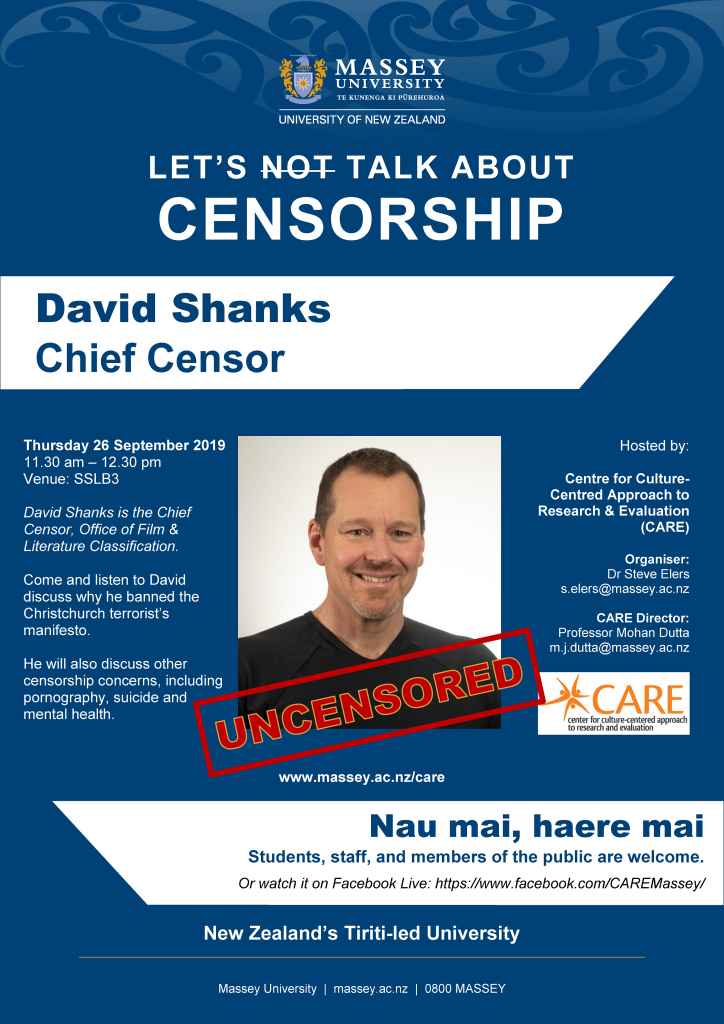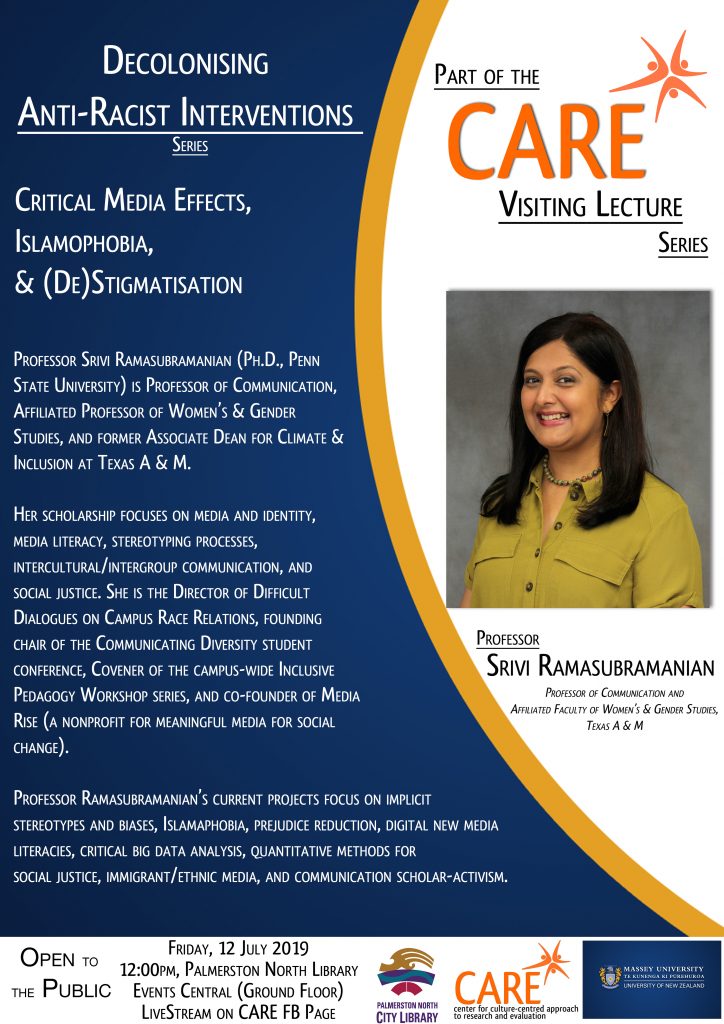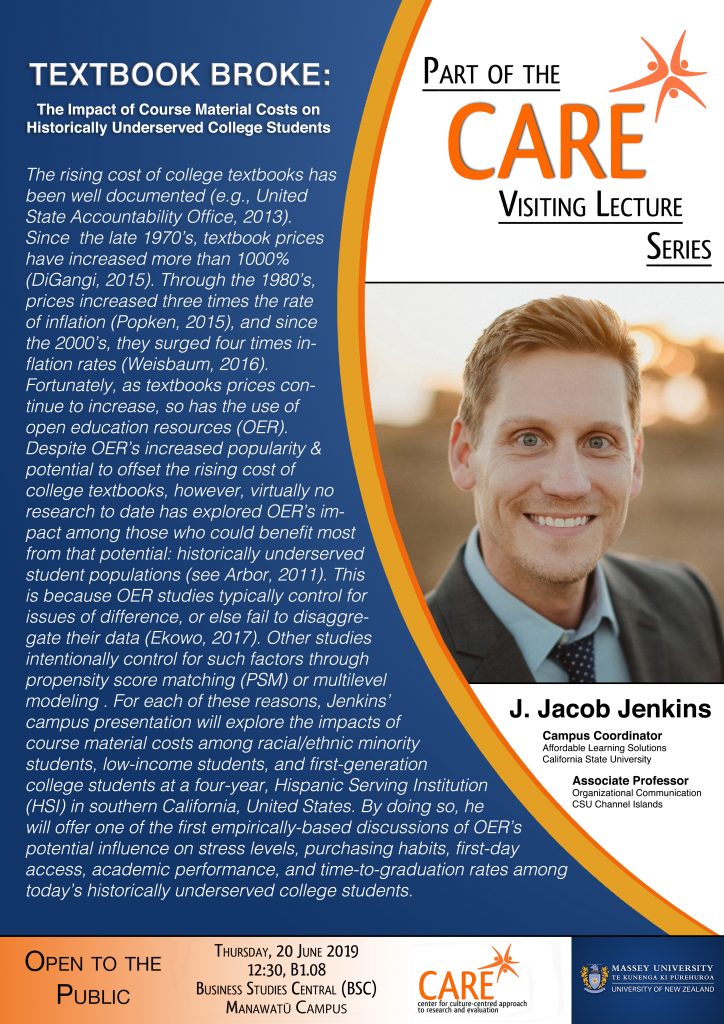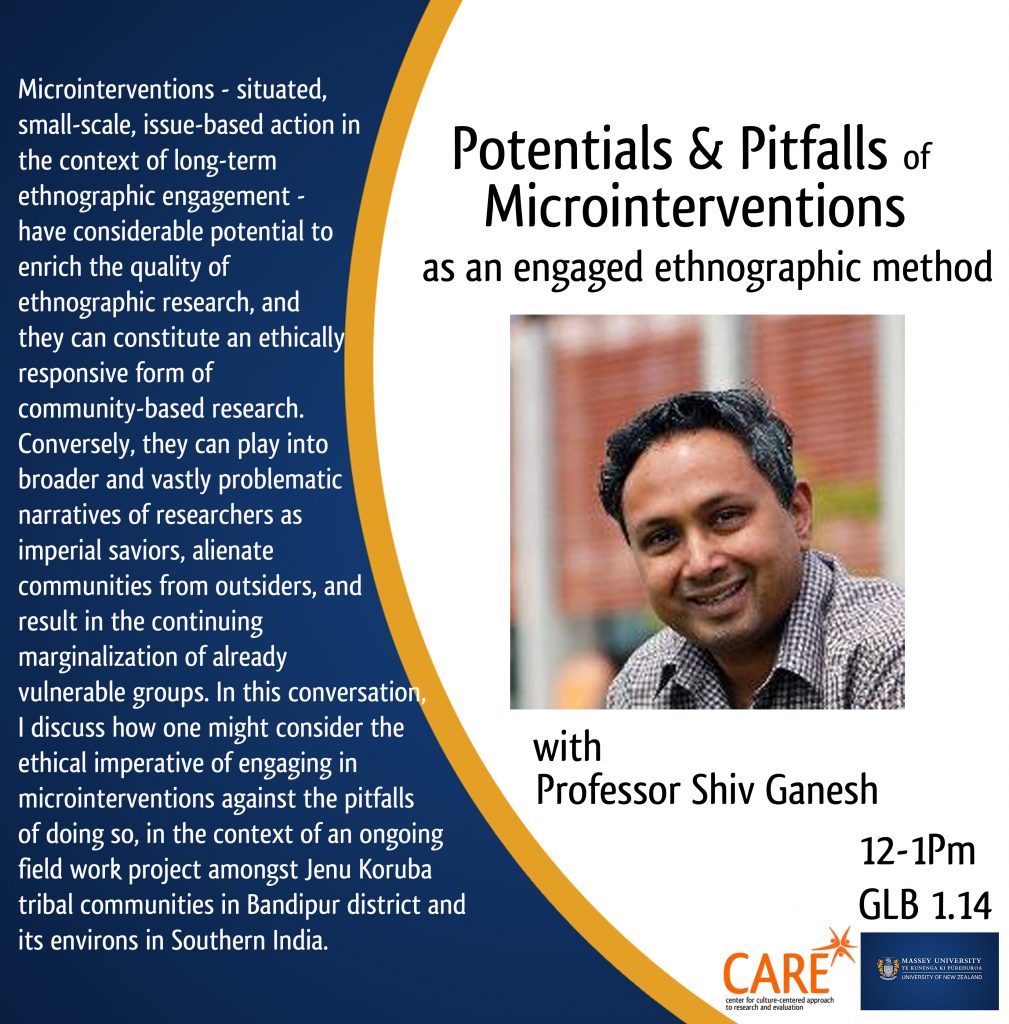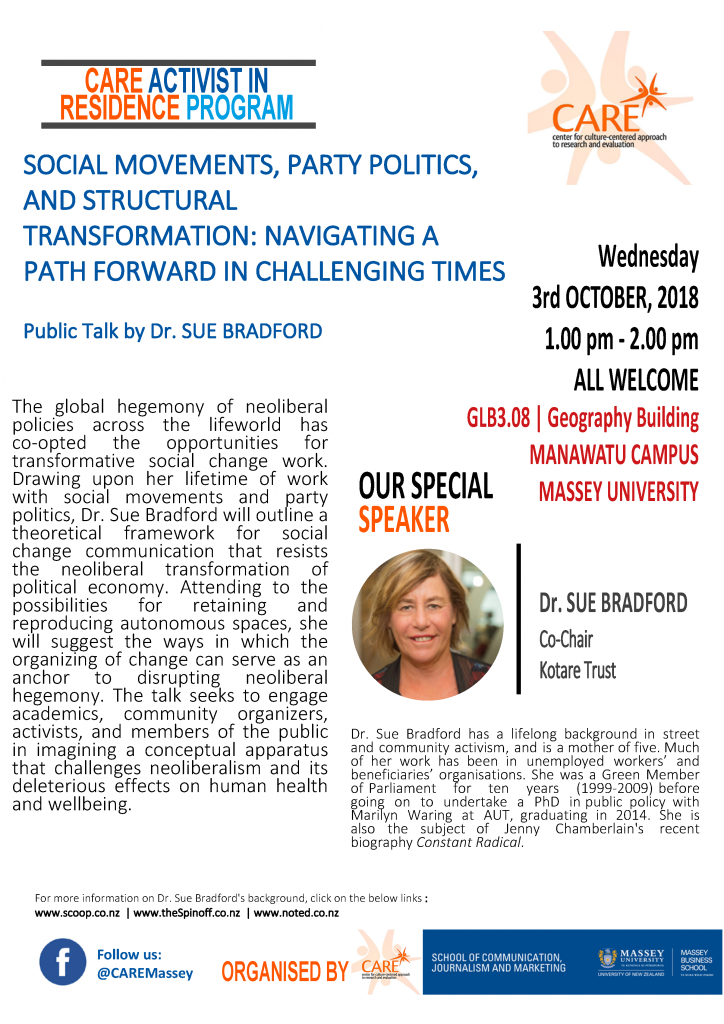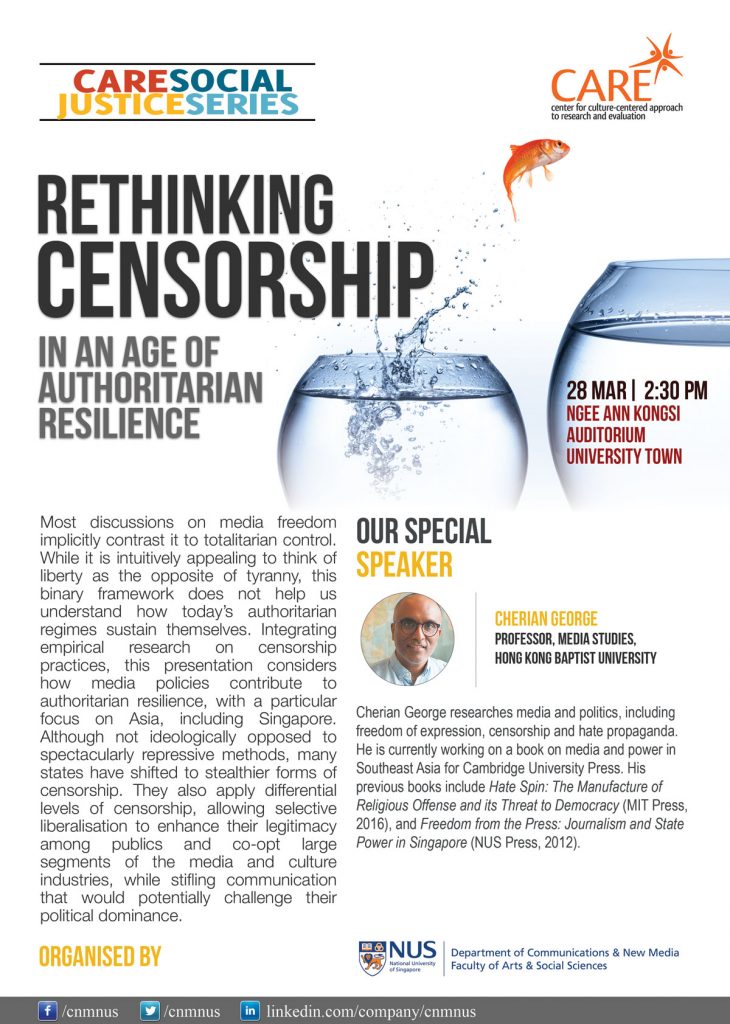
Written by Ms Raksha Kirpal Mahtani | raksha@nus.edu.sg
The CARE talk on Sexual Violence aimed to look at how communications impacts on concepts of sexual violence, promotes education on the legal measures available to those who have suffered sexual assaults and connects support services for the survivors of sexual assaults.
Dr Asha Rathina Pandi, from CARE and a CNM lecturer, opened the Dialogue session, sharing her thoughts on how society has evolved that today there are more culturally responsive ways to formulating and coordinating responses, finding solutions on sexual assaults that are survivor-centric. Dr Asha also highlighted the usefulness of a campaign such as #MeToo[1] that has raised awareness to sexual violence when talking about sex is still a taboo subject. She then introduced the speakers on the panel.
Ms Braema Mathi’s presentation was entitled “Time is Up.The Truth. The Action”. She opened the discussion with definitions of sexual violence, as articulated by the UN Human Rights Council, the UN Special Rapporteur on Violence against Women, CEDAW[2], WHO (World Health Organisation) and in Singapore laws. She highlighted that WHO’s definition takes into account ‘coercion’[3], which goes further than ascertaining if sex was consensual or non-consensual. This development in definition is a response to how sexuality is expressed today where there is high digitisation, access to date-drugs and clear displays of diverse sexual behaviours. She added that sexual violence is a package, with physical and psychological violence, that impacts the person.
To show how change had come about, Ms Braema gave a historical overview from how women were treated as ‘properties’ of men. Many men still see themselves today as heads of households, in societies, at workplaces. Societies are still patriarchal and objectify women. Social media has opened doors to greater sexual experimentation where women, men, girls and boys are often no longer sure where the boundaries are and risk getting caught out by their own actions. Ms Braema also shared how women were treated in conflicts, referring to stories of gang rapes of Rohingya women. She said the UN has played a role in normalizing the work to protect especially women, against violence. She said that over almost 40 years, UN agreed to 3 General Recommendations (GR) [4] that were added to CEDAW to request countries under the State Obligation principle, to be focused on preventing violence against women, girls, boys, men, protection of persons and prosecution for perpetrators. These changes have come about through time because of the many voices, the lobbying of survivors, activists, lawyers, journalists, care workers, academics, celebrities, leaders who have spoken up and fought for social change. In February, popular actress Oprah Winfrey supported the #MeToo Campaign and said Time is Up for the silence and for those accused.
Globally, more than a third of women have been physically or sexually assaulted. But 70 per cent of assaults go unreported. Ms Braema added that “anyone and everyone” – women, girls, boys, men, infants, older persons, LBGTs, infants, sex workers, trafficked persons into the sex industry, migrant workers – can be and have been sexually assaulted in their everyday lives or have been targeted in conflicts and acts of vengeance. Certain communities are more vulnerable to sexual violence, because of their nationalities, ethnicities, religious groups, cultures, social classes, work status (factory floor workers, foreign domestic workers, aid workers, journalists), social status (drug addicts, homeless, bohemian, refugees). In Singapore, police data shows that almost each day there is a reported case of a sexual assault. Between 2012 and 2016, there were 325 cases of sexual assaults against women, and abuse of girls aged fewer than 16[5].
The truth is that communications to effect change, has to go on, for sustainable long-term prevention of sexual violence, through knowledge-sharing and accepting gender equality. She raised a few questions:
- how successful is the #MeToo campaign as response rates in Asia seem to be low?
- how sustainable is the success from an involved campaign that took place in India 5-years ago, in support of Nirbhaya[6], a 23-year-old who died from a severe gang rape that included rod penetrations that punctured internal organs?
- how successful is the lobbying by the WW II South Korean comfort women, now in their late 80s, who stand, every day, in front of the Japanese Embassy in Seoul, asking for an apology?
- how to successfully handle certain cultural and religious beliefs on female genital mutilation and child marriages, to show that these are sexual assault practices against children?
In closing, Ms Braema, reiterated on barriers and the silence on talking about sexual violence, reminding the audience of 35 students to think how they could advocate for survivors to receive protection and assistance they need, and also prevent of sexual assaults through sustainable communications and gender mainstreaming approach in education.
The second talk by practicing defence lawyer Ms Gloria James-Civetta, was entitled Justice & Legislation: Improvements, Protection & Challenges related to Sexual Harassment. Leveraging her experience working with families, women reporting family violence, women reporting sexual harassment and assaults, amongst other cases, Ms Gloria framed her dialogue on how the legal context on sexual assault laws works, as governed by the Women’s Charter and Penal Code in Singapore.
She highlighted a case where a Singaporean woman was sexually assaulted by her boyfriend overseas, citing that Singaporean courts are limited by jurisdictional issues in that they cannot rule on crimes overseas when it comes to sexual assault. She also illustrated on how diversity in legal definitions on sexual assaults posed challenges. Some countries recognise ‘consent’ as a touchstone point to determine if a sexual assault had taken place. But other countries required a concomitant physical assault (or beating) to take place before the event could be recognised as a rape. In addition, socio-cultural norms also make it a challenge to legally defend a client as there can be a normalisation of certain types of sexual assault, which makes it acceptable. For example ‘petting on the butt’ is not seen culturally as a sexual assault in some societies. As such women who feel violated will find it hard to prove that there is sexual assault, much as the lawyers too, will find it difficult to use the law as an asset to argue the case for sexual assault. She also shared that in cases of incest it is also very difficult for the girl, as she would not wish to break up the family or see her parent or relative in jail. There is also limited protection on marital rape.
Ms Gloria also expanded on the contexts in which sexual assaults happen. ‘Couch sharing’ apps have led to more women reporting to lawyers on harassments, threats, and extortions they experience. Others have shared their experiences of sexual assaults through ‘upskirt’ mobile phone video-ing, web-based nudity, cybersex, and self-pleasure videos. These are the new norms of sexual violence, with women and girls bearing the brunt of the sexual assaults. She also shared that legally it is a challenge, in some of these cases, to prove that a person has been sexually assaulted, as there is an equal contestation by the lawyer of the accused. Ms Gloria said it is very important to share the details, without feeling shy or embarrassed, so that lawyers can try their best within the ambit of the law.
She also highlighted that the prosecution has the prerogative to compound the offence – or decline to prosecute – which can put an end to the matter. There is limited precedence for civil action on criminal offences such as sexual assaults, which greatly limits the options that survivors have, even when they seek legal help and do report. She shared the various laws to show how definitions and articles do scope the work to prove sexual assaults, especially where the burden of proof for criminal cases is very high i.e. ‘beyond a reasonable doubt’.
Ms Gloria said that it was important to remember that the path to recovery is multi-faceted, and the person may require different avenues of seeking closure and support, counselling, and medical assistance. What is needed, she said, is to take on a holistic approach. In her work with the Courts, she said, she has been working towards mental health treatment plans and alternative sentencing for non-contact sexual violence offenders. She stressed that there must be a joint effort and early interventions to truly address this important issue in Singapore. Service and care workers, who are majority women, often receive the brunt of sexual harassment.
The third speaker was Ms Jolene Tan, AWARE’s Head of Research and Advocacy, whose presentation was titled Supporting Survivors of Sexual Violence. AWARE’s women’s helpline started in the 1990s. In 2014, it set up the Sexual Assault Care Centre (SACC), a groundbreaking development in AWARE’s work, to support and care for survivors of sexual assault in Singapore.
AWARE’s data shows that many people have sought help, annually, through their general helpline. The SACC numbers are higher showing again that many women and girls do not report to the police. Ms Jolene stressed that, despite the challenges, there is at least one headline a day in the Straits Times on a sexual assault crime in Singapore. These are reported cases, the tip of the iceberg because sexual violence is grossly under-reported. She said Singapore has a lower level of awareness when it comes to recognising sexual assault as it happens. People tend to deny that sexual assault happens in Singapore because “we are wealthier, luckier, more developed, safe”. However, SACC saw higher reporting rates in its cases around the time of the #MeToo campaign.
What is more important is that more women and girls can talk to SACC about their sexual assault experiences and not be putt of by comments such as “it’s a one-off incident”, “not serious”, “were you drinking?”. She also said that reassuring women was important, as there are now more technology-aided crimes such as revenge porn, online harassment, and non-contact sexual assault.
What is needed, she added, is that sexual violence needs to be mainstreamed as something that happens in Singapore. She asked for a systematic sensitisation of the public, doctors, lawyers, police, counsellors that can dramatically change the context of a report.
AWARE also provides counselling, legal information, befriender services, and a support group for survivors. Jolene reiterated that having a centre called the Sexual Assault Care Centre (SACC) was significant as it is an affirmation to survivors that their struggles are real, and that they are not alone in the recovery process. For some survivors, recovery is not always about reporting through the avenues provided by criminal justice system, but it may be through just listening, counselling, support, recognition, healthcare, and/or building community in which survivors can find reprieve.
Support Services available:
- Students have a hotline for counselling
- AWARE’s Sexual Assault Care Centre, Contact No: 6779 0282
- PAVE: Promoting Alternatives to Violence, Contact No: 6555 0390
- Ministry of Social and Family Development’s Child Protective Services Helpline, Contact No: 1800-7770000
- Trans Safe Centre, Contact No: 64499088
[1] https://metoomvmt.org/
[2] CEDAW, Convention on the Elimination of All forms of Discrimination against Women has been ratified by 188 countries, including Singapore, and is the fundamental anti-discriminatory Convention to give women their rights. CEDAW defines discrimination against women as “…any distinction, exclusion or restriction made on the basis of sex which has the effect or purpose of impairing or nullifying the recognition, enjoyment or exercise by women, irrespective of their marital status, on a basis of equality of men and women, of human rights and fundamental freedoms in the political, economic, social, cultural, civil or any other field.”
[3] Coercion, with regard to sexual violence, can cover a whole spectrum of degrees of force. Apart from physical force, it may involve psychological intimidation, blackmail or other threats – for instance, the threat of physical harm, of being dismissed from a job or of not obtaining a job that is sought. It may also occur when the person being attacked is unable to give consent – for instance, while drunk, drugged, asleep or mentally incapable of understanding the situation; http://apps.who.int/iris/bitstream/10665/77434/1/WHO_RHR_12.37_eng.pdf; www.http://www.who.int/violence_injury_prevention/violence/global_campaign/en/chap6.pdf; http://www.stopvaw.org/consent_force_and_coercion
[4] CEDAW’s General Recommendations (GR) 12( 1989), !9 ( 1992), 35 (2017) shows a constant need to bring about more awareness and protection to deal with violence, a constant social change by UN that is needed to reduce the prevalence of abuse. In GR 35, Article 14: “Gender-based violence affects women throughout their life cycleand accordingly references to women in this document include girls. This violence takes multiple forms, including acts or omissions intended or likely to cause or result in death18 or physical, sexual, psychological or economic harm or suffering to women, threats of such acts, harassment, coercion and arbitrary deprivation of liberty.Gender-based violence against women is affected and often exacerbated by cultural, economic, ideological, technological, political, religious, social and environmental factors, as evidenced, among others, in the contexts of displacement, migration, increased globalization of economic activities including global supply chains, extractive and offshoring industry, militarisation, foreign occupation, armed conflict, violent extremism and terrorism. Gender-based violence against women is also affected by political, economic and social crises, civil unrest, humanitarian emergencies, natural disasters, destruction or degradation of natural resources. Harmful practices20 and crimes against women human rights defenders, politicians21, activists or journalists are also forms of gender-based violence against women affected by such cultural, ideological and political factors”. http://tbinternet.ohchr.org/Treaties/CEDAW/Shared%20Documents/1_Global/CEDAW_C_GC_35_8267_E.pdf
[5] https://www.msf.gov.sg/research-and-data/Research-and-Statistics/Pages/Violence-Rape-Victims.aspx
[6] The victim of the Delhi gangrape case was renamed ‘Nirbhaya’ (Hindi for fearless) by Indian feminist activist groups to protect her identity, and her name and case later became a clarion call for social change and sexual assault law and policy reform in India.


